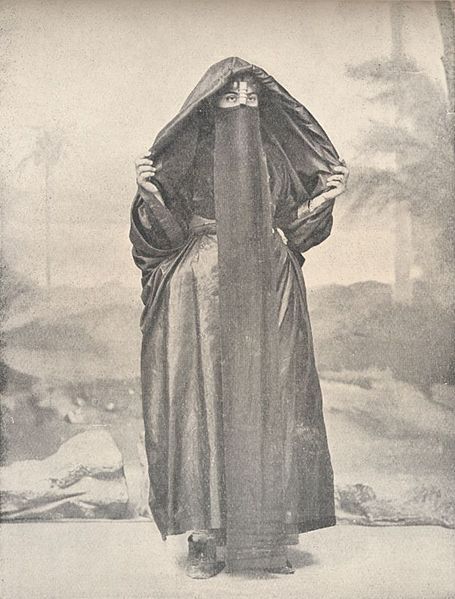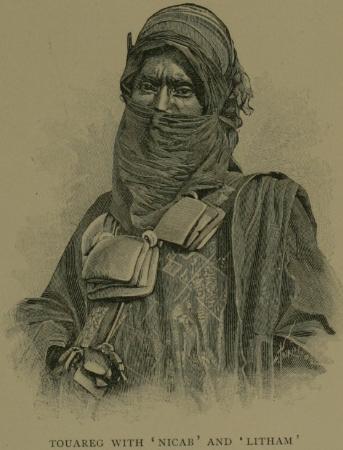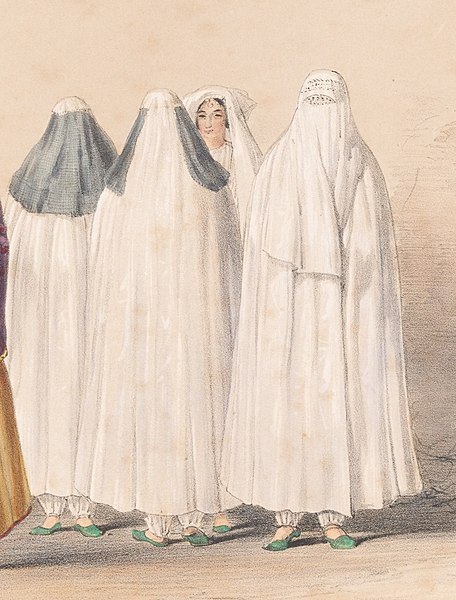#based on my knowledge of historical western swimwear my initial reaction would be to doubt that modest muslim swimwear is actually dangerou
Explore tagged Tumblr posts
Text
@bubbletea4ever I'm responding to your comment in a separate post since my answer got too long and I then just decided to properly make my case.
(For anyone else stumbling here, here's the post in which comments we were discussing. There's couple of comments before this, so if you want more context, you are free to check them out.)
So here's @bubbletea4ever 's comment:
so you can understand that regimes can control and influence how people dress, but you can’t see that a culture does the same? If you ask women who veil their faces why they do it, how many of them do you seriously think are going to say ‘to protect me from the sun’ ? covering your face is dehumanising to yourself. you can pretend it’s neutral but it’s not. there’s not a world where this means nothing, it’s inherently oppressive that women just so happen to be the sex whose awra seemingly includes everything but the face and yet even some believe they should cover that. It is inherently oppressive that there are women who choose to swim in clothes that puts them at further risk of drowning in the name of piousness. And I said it’s cultural imperialism because that’s precisely what it is. Not every niqabi is from the specific region of Saudi where this began. This sort of regression only had a resurgence because of petro-Islam.
Of course people don't usually actively think about their clothing's origin or practical purpose. Culture forms around the practice and assigns symbolism and meaning to it. If you ask most people of the world "why are you not going out in your underwear?" they will probably not answer by "because of western hegemony we are all wearing clothing that originates from Europe and in European climate layering is the best strategy to keep you warm but not overheated or sweaty". They will most likely answer "it's not appropriate". Yes, the reason today many Muslim women wear any kind of veil, including niqab, are usually religious reasons (weather by choice or not), but my point in my original response was to show that these clothing are not just tools of oppression or just religious symbols, they are also practical useful garments which have long history, just like any other traditional clothing item from different cultures. My point was that while they can take different meanings, none of those meanings are inherent to them.
When I mentioned enforcing and controlling how people dress I of course mean also other means of control than just legal means. But there is a difference in controlling societal structures and cultural norms, though the line between those two is often hazy. All cultures ever have had some social standards and norms for dress. My previous example works here as well. In modern globalized culture it's deemed inappropriate to be naked or even in just the underwear in public. However, there is nothing inherently inappropriate in it. In many cultures thorough history, mostly those originating from hot and at least semi-humid climates, it has been entirely appropriate to appear almost or fully naked in public, and the concept of underwear itself is not even universal. Even in Early Modern Europe it was very appropriate for certain women in certain situations to appear in public their breasts fully exposed (I have a post where I explain the phenomena). However, in modern globalized culture it's not. I wouldn't call that inherently oppressive though. Historically using veils (even face coverings in desert climates) was often more of a neutral cultural norm like the one I just described rather than a tool of societal control, including in Europe, where veils and other head coverings were for a long time part of the standard dress (also originally for practical reasons). (I'm not saying this was always the case thorough history, I can already think of some examples which cross the hazy line to more of an oppressive standard, but broadly speaking.) Of course, I do know that in many modern Muslim societies, even when there's no outright laws enforcing it, there is very much societally enforced pressure especially for women to wear certain clothing, which is oppressive. Still the garments themselves are not oppressive.
I think it's interesting you say covering your face is inherently dehumanizing. Why is that? What makes covering your face specifically dehumanizing? Is covering your eyes dehumanizing? For example would you consider using sunglasses as dehumanizing?
I'll give you an example to better explain how I see this. In Victorian Era western societies it was societally enforced standard for women to only wear skirts and never pants. That was oppressive. Are skirts then oppressive? I certainly wouldn't agree with that. Some feminist women did push against this oppression and wore pants. There were also women who agreed that it's oppressive to control what women wear but still choose to wear skirts. Was the only reason they choose to wear skirts because of this oppressive standard? For some it certainly was because they were afraid of the backlash, which was severe at first. But for others it clearly wasn't, because some of them did dress in very unconventional manner directly contrasting the contemporary beauty norms, but still wearing skirts. Would it have been a good way to dismantle this norm by demanding that no woman ever wears a skirt? Absolutely not. There would be just another type of control. (I write a bit more on that history in this post.) Another example. At the same time men were not allowed to wear skirts in public (outside very specific situations like when they were small children or when they were a Scott wearing a kilt). During Victorian Era many countries had laws against cross dressing, but even to this day it's not socially acceptable for men to wear skirts in western and most westernized countries. Even if there's no longer laws against it, our oppressive social structures still enforce that. So are pants then oppressive? Of course not. Should all men stop wearing pants? No, they should be allowed to wear skirts or pants. Should I assume that every man ever wearing pants is only doing it because they are oppressed by the societal standards of dress? I do not think so. My thinking is exactly the same about niqab and other Muslim and Arab garments.
In your previous comment you said the prevalence of face covering as a whole is due to imperialism, which is what I disagreed with, at least with the "as a whole" part, because as I said, face coverings have long been used in many arid, especially desert, environments, not just Arabia. Niqab term and the specific form comes from Arabia, but very similar types of face coverings are not exclusive to Arabia nor even to Islam, nor do they originate with either of them. There's even historical examples from Europe of the practice of face coverings in certain areas (for example in parts of Germany during the Renaissance, but this is veering quite off the point). Face coverings have been recorded in Levant in pre-Islamic historical accounts as well, as this academic article on the misconceptions about nicab explains (this paper informs my opinion in this subject a lot). Coptic Orthodox women, who are Christians who originate around Eqypt, traditionally wore black veils and face coverings as seen in the photo from 1918 below. Tuaregs (one of the Amazigh peoples of North Africa), both men and women, but particularly men, have also worn face coverings called Litham for centuries, as seen in the second image from 1897. Litham is a veil that also covers the face, and is often worn by men as a turban. In Central Asia face coverings have also been used for a long time, chaderi has been used in Afghanistan for several hundred years, as seen in the third image, an illustration from c. 1840.



These are just a few examples and my point with them is to illustrate niqab style face coverings are not exclusive to Saudi Arabia, and certainly not to Najd alone, so calling all face coverings outside Najd Saudi imperialism is simply not true. Saudi Arabia is certainly an imperial entity and historically Arab imperialism has been in a cultural hegemony position in the MENA area. However, Arab imperialism is certainly not the only kind of imperialism effecting MENA societies. Similarly as Arabic cultural products are pushed on many Muslims outside Arabia and even Arabic countries, so are western products. Would you think the only reason an Arab or a Muslim more broadly, man or a woman, would wear jeans or other western clothing is that they are oppressed by western imperialism? Would you condemn that usage of jeans?
It was also the western colonialism which enforced western cultural norms in many Arab and other Muslim countries, which led to the wave of westernization across MENA in the 20th century and the decline of the usage of traditional clothing, including veils and face coverings. Western world of course framed it as progress, because in the colonial framework the burden of the white man was to "civilize" non-white non-western societies. Everything non-western was then backwards and uncivilized. The Islamic backlash against this led to another kind of oppression, which is fueled by the continued western imperial presence in the area. Even Saudi Arabia is in the end just an arm of American imperialism. My point is traditional Islamic or Arab garments are not inherently more oppressive than western garments, what is oppressive when either is forced upon a culture and upon it's people.
#i did not comment on the swimwear part because i think that's beside the point#weather traditional arab garments are inherently oppressive or not#since the swimwear is not traditional#and my knowledge is mostly related to historical dress so i don't feel i know enough of the muslim swimwear to properly comment on it#based on my knowledge of historical western swimwear my initial reaction would be to doubt that modest muslim swimwear is actually dangerou#but again i could be wrong since i don't really know that much about it
35 notes
·
View notes